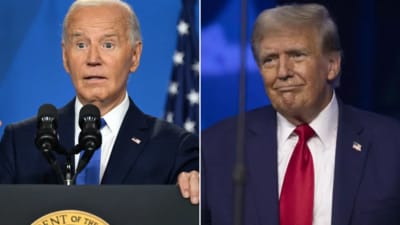
On July 12th, the NATO Conference convened with unprecedented fervor as President Joe Biden drew comparisons to Vladimir Putin, addressing the media with a stoic demeanor reminiscent of the Russian leader. Meanwhile, Vice President Kamala Harris found herself in the role of a seasoned Trump, deflecting questions with finesse but avoiding direct answers—a tactic that raised eyebrows among journalists.
Trump, who has already initiated a negative campaign on the matter, publicly questioned Biden’s capacity to lead, casting doubts on his suitability for the presidency. Amidst this turmoil, voices within the Democratic Party have also begun to criticize Biden’s handling of the situation, signaling potential rifts within the party’s support base.
The NATO Conference, originally intended to strengthen international alliances and discuss pressing global issues, has instead become a stage for domestic political theatrics, with Biden facing increasing scrutiny from both political opponents and erstwhile supporters alike. As tensions escalate, the world watches closely, awaiting further developments from the Biden administration amidst a backdrop of diplomatic challenges and internal strife.
